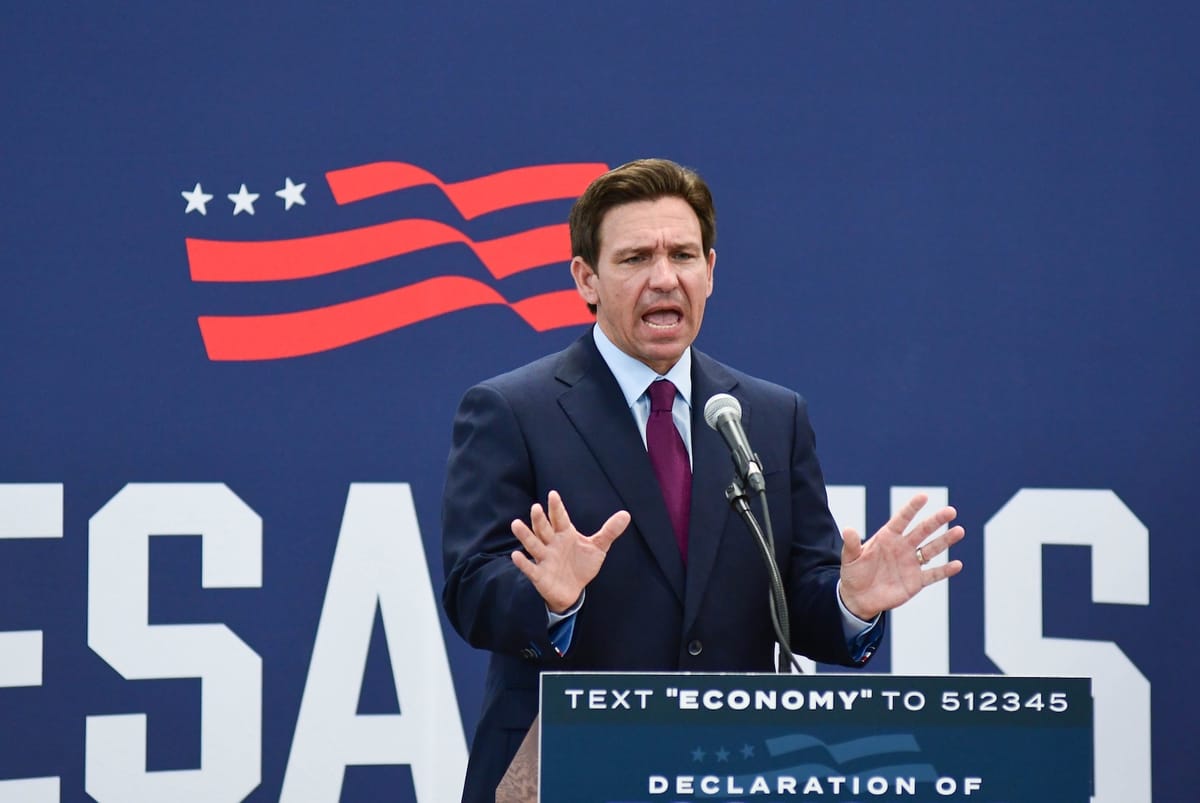

Early Life and Education
Ronald Dion DeSantis was born on September 14, 1978, in Jacksonville, Florida, to Karen and Ronald DeSantis. His middle name, Dion, honors the singer Dion DiMucci. DeSantis' parents met while attending college in Youngstown, Ohio, and later moved to Florida in the mid-1970s. The family initially lived in Orlando before relocating to Dunedin, near Tampa Bay, when DeSantis was six years old.
DeSantis was raised a Catholic and attended Our Lady of Lourdes Catholic School and later Dunedin High School, where he was an avid baseball player. In 1991, his Dunedin team made it to the Little League World Series, an experience he would later reflect on as formative. After graduating from Dunedin High School in 1997, DeSantis went on to study history at Yale University.
Teaching Career and Law School
After graduating from Yale, DeSantis taught history and coached at Darlington School in Rome, Georgia, for a year. He then attended Harvard Law School, where he earned his Juris Doctor in 2005, cum laude. During his time at Harvard, DeSantis was the business manager for the Harvard Journal of Law and Public Policy.
Military Service
While still enrolled at Harvard Law School, DeSantis joined the U.S. Navy in 2004 as a naval judge advocate general (JAG). He completed his training and was initially assigned to a naval base in Florida before being transferred to the U.S. detention center in Guantánamo Bay, Cuba. At Guantánamo, DeSantis provided legal advice to military staff and detainees. He later served as an advisor to an elite Navy SEAL team at Naval Base Coronado in California and then in Iraq in 2007, where he received a Bronze Star Medal for Meritorious Service and the Iraq Campaign Medal.
DeSantis left active military duty in 2010 but remained in the U.S. Navy Reserve until shortly after he became governor, retiring with the rank of lieutenant commander.
U.S. Congressman
In 2012, DeSantis ran for Congress in a newly drawn north Florida district, fueled by the conservative momentum of the growing Tea Party Movement. He defeated six challengers to secure the Republican nomination and then won the general election easily. During his tenure in Congress, DeSantis became a vocal critic of the Obama administration, arguing against increased spending, advocating for stronger border security, and voting to dismantle the Affordable Care Act.
DeSantis was reelected in 2014 and became a cofounder of the House Freedom Caucus, a hard-line conservative group aimed at pushing the House Republican leadership to the right. In 2015, he announced a run for the U.S. Senate but withdrew when Senator Marco Rubio decided to run for reelection. DeSantis was reelected to a third House term in 2016 and served until his resignation in September 2018 to pursue his gubernatorial campaign.
Governor of Florida
In 2018, DeSantis won the Republican nomination for governor and narrowly defeated Democratic nominee Andrew Gillum in the general election by 0.4%. As governor, DeSantis has been at the forefront of several high-profile issues, including the COVID-19 pandemic, Hurricanes Ian and Nicole, and the passage of controversial bills such as the Parental Rights in Education Act and the Heartbeat Protection Act.
In the 2022 gubernatorial election, DeSantis defeated former governor Charlie Crist by a significant margin of 19.4 percentage points, the largest margin of victory for a governor's election in Florida in 40 years.
Presidential Candidacy
On May 24, 2023, DeSantis announced his candidacy for the Republican nomination for president of the United States. He continued to serve as governor during his campaign but withdrew his candidacy on January 21, 2024, and endorsed Donald Trump.
Cultural and Educational Policies
DeSantis has been vocal about his disdain for what he terms 'woke' ideology, particularly in the context of education. He has signed several bills aimed at eliminating these ideologies from Florida's educational system, including the Stop the Wrongs to Our Kids and Employees (Stop WOKE) Act. Additionally, he has been involved in the takeover of New College of Florida and efforts to reconstruct higher education in the state.
Legacy and Impact
DeSantis' career is marked by his strong conservative stance and his commitment to the principles he believes are fundamental to American society. From his early days as a baseball player and student to his service in the military and his rise in politics, DeSantis has consistently shown a dedication to his values and a willingness to take on controversial issues.
A Life of Service and Leadership
Throughout his life, DeSantis has demonstrated a clear commitment to public service and leadership. From his military service to his tenure in Congress and as governor, he has consistently sought to influence policy and shape the future of his state and country. His journey from an Ivy League education to the highest echelons of state and national politics is a testament to his hard work, resilience, and unwavering convictions.
Reflections and Future Outlook
As DeSantis continues to navigate the complexities of modern politics, his legacy is likely to be shaped by his unwavering commitment to conservative values and his efforts to shape educational and cultural policies in Florida. Despite controversy and challenges, DeSantis remains a significant figure in American politics, with a future that is both promising and scrutinized.
Dues are $12 per year. Member benefits:
✅ Ad-Free Website Viewing
✅ Advocacy for Republican Seniors
✅ 120+ Senior Discounts
✅ Member Only Newsletters